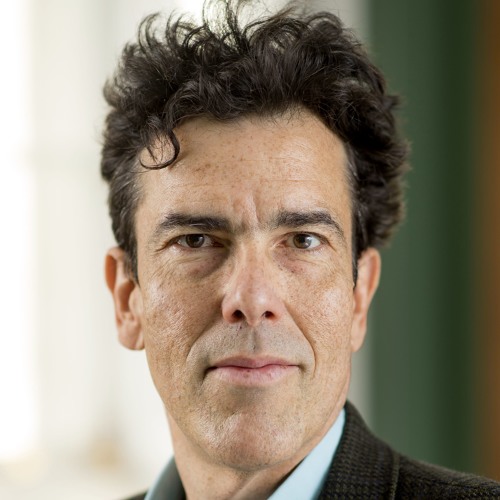Lecture Richard Drayton
Slavery, capitalism, Europe's empires and its hinterlands
- 1 December
- 15.30 hrs
- online via Zoom
https://knaw-nl.zoom.us/j/99731938996?pwd=UEhybnhLU1RXeGJMQzRRdFN0YnlMZz09
Abstract: 'Deutschland bezahlte seine Kolonialwaren mit Leinen'. Kulischer, with this terse formula, sought only to explain a German phenomenon: how sugar, coffee and tobacco importation was intrinsically tied to linen production, far up the Elbe from Hamburg. The full implications of this kind of connection between tropics, entrepot cities and Europe's hinterlands, tying together Silesian weavers and enslaved Africans, for the larger global history of Europe deserves more exploration.
It has been conventional to assume that European imperial expansion c. 1500-1800 was exclusively a problem connected to the histories of the Iberian and North Sea maritime nations. But Central Europe participated, through its rivers, in every direction of European expansion. All the great 'Blue water' European empires -- Iberian, Dutch, French, and British -- depended on the hinterlands of Europe for inputs, especially copper, iron, silver, and naval stores, and for the sale of exotic colonial imports such as sugar, coffee, tobacco and textiles. Critical to this trans-European history of imperialism is that hinge region of North-west Europe where the rivers of Germany connect economy and society in the Baltic and south-central and eastern Europe to the Atlantic, with Antwerp and Amsterdam in one period, London, Bordeaux and Hamburg in another, at its focus.
The key scandal of Eric Williams's Capitalism and Slavery, for both 'political marxists' on the left and liberals like Pieter Emmer on the right, is how it provided an extra-European, imperial, and violent origin for European modernity. We shall extend this transgression further by examining how enslaved people, as sources of labour, as commodities, and even as currency, played a key role in the making of these capitalist interconnections over a very long term, with consequences deep in the interior of Europe.
Bio: Richard Drayton was born in Guyana and grew up in Barbados, where he went to school at Harrison College. He left the Caribbean as a Barbados Scholar to Harvard University, going then to Yale, where he wrote his doctoral dissertation under the direction of Paul Kennedy and Frank Turner. He also spent two years as a graduate student at Balliol College, Oxford as the Commonwealth Caribbean Rhodes Scholar. In 1992 he first came to Cambridge as a Research Fellow of St Catharine's College, moving back to Oxford in 1994 to be Darby Fellow and Tutor in Modern History at Lincoln College. After 1998, he was Associate Professor of British History at the University of Virginia. In 2001, he returned to Cambridge as University Lecturer in Imperial and extra-European History since 1500, and as Fellow and Director of Studies in History at Corpus Christi College. In 2002 he was awarded the Philip Leverhulme Prize for History. He was Visiting Professor of History at Harvard University in Spring 2009. He came to King's as Rhodes Professor in 2009.
Published and free to download:
R. Drayton and David Motadel, "The Futures of Global History", Jl of Global History, 2018, 13(1), pp 1-21: https://doi.org/10.1017/S1740022817000262
Richard Drayton, **Whose Constitution? Law, Justice and History in the Caribbean: 6th Distinguished Jurist's Lecture**, open access book,
Judiciary of Trinidad and Tobago, 2016: http://www.ttlawcourts.org/jeibooks/books/djl2016_final.pdf.
This was cited in the landmark constitutional judgement striking down the criminalization of same-sex sexuality in Trinidad and Tobago: TT_Jason Jones vs. Attorney General (2018) HC, 12 April 2018
Gresham Lecture: "Slavery and the City of London", 28/10/19: https://www.youtube.com/watch?v=9_Ksqj7O8bM
An interview of Richard Drayton by Alan Macfarlane in 2017 (Cambridge 'Film Interviews with Leading Thinkers' series): https://upload.sms.csx.cam.ac.uk/media/2668503
IISH Seminar: This lecture is part of the monthly IISH Seminar series. This seminar is open to the public online only.



